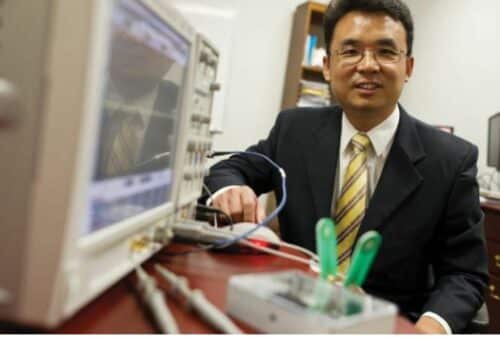A University of Texas at Arlington researcher has been awarded a three-year grant from the National Science Foundation for about $600,000 to develop real-time artificial intelligence (AI) technology that is speedier and more energy-efficient.

Electrical engineering professor Qilian Liang will develop deep-learning hardware accelerators using tools, circuits, and algorithms to build deep generative AI models with more straightforward design and architecture. Deep-generative AI creates scalable models of complicated data, including images, text, and data, using statistics and probability. It is anticipated that Liang’s research would result in orders of magnitude increases in speed and energy use.
“We will look at architecture, hardware and software to make the AI technology process much faster so it can be implemented in real time and increase its energy efficiency,” Liang said. “Beyond the obvious computing applications, this technology could also make it into the field in robots, autonomous driving and even the process of creating news releases in real time.”
Liang will streamline the hardware design architecture to speed up computing. In order to save money and enable quicker processing, he will also design more efficient circuits and hardware and develop an algorithm to determine whether AI implementation can be made more affordable.
The group will concentrate on these three different deep-generative model types:
- To enhance image recognition, vision transformer-based generative modelling applies a transformer architecture to selected areas of an image. AI will consume less time and energy if it can make sense of its surroundings rather than needing to sift through a large number of photos.
- Masked generative modelling reduces the quantity of data that AI must filter through by hiding data that is not useful for the task at hand. The disguised information can then be recovered and utilised to fill in the blanks, perhaps enabling earlier decision-making.
- Cross-modal generative modelling sorts through multimodal data at the same time to determine what is helpful and what is not using two different types of models.
“As AI technology advances, the need for it to be faster and more energy efficient becomes greater,” said Diana Huffaker, chair of the Electrical Engineering Department. “Dr. Liang’s work will enable greater innovation in the future by removing some of the current limitations on this technology.”






